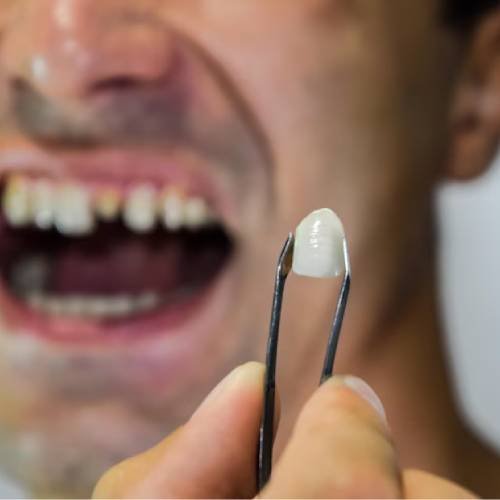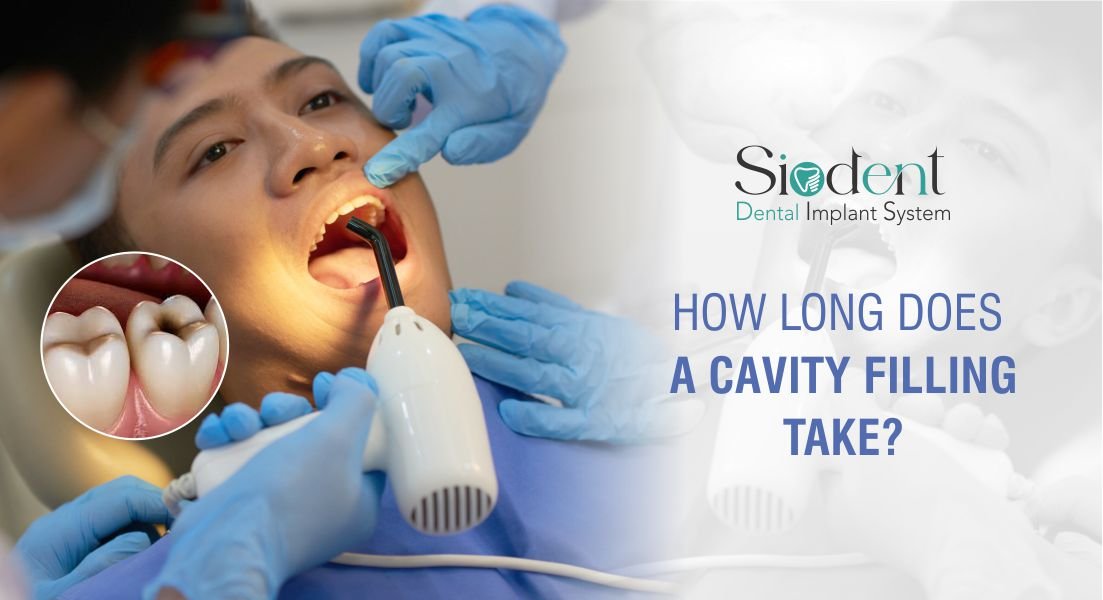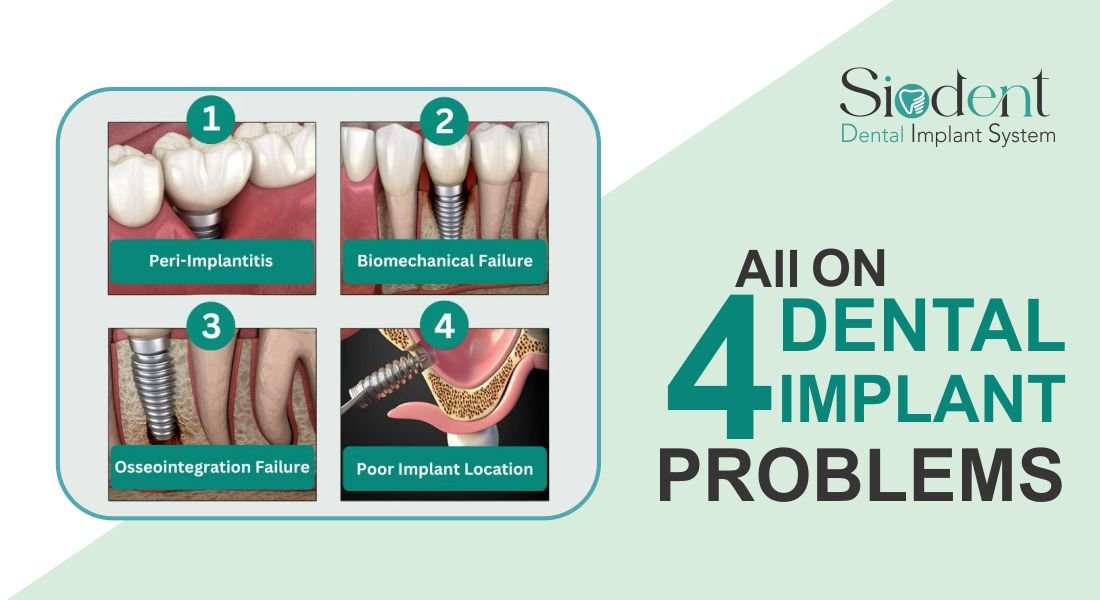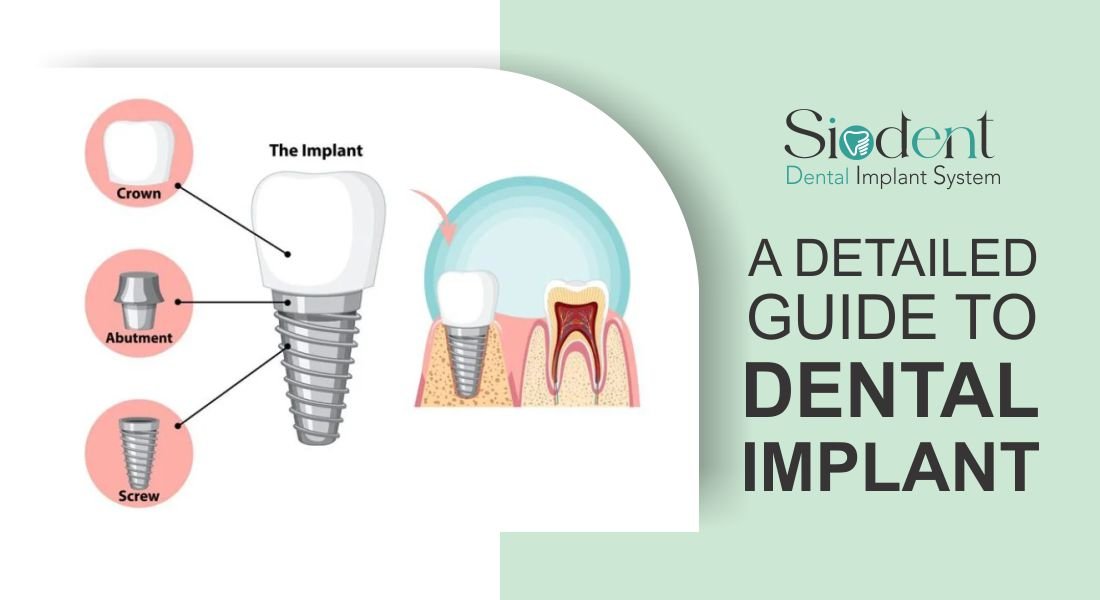Dental implants have become a popular choice for replacing missing teeth, offering a durable, natural-looking solution. Despite their high success rate, some implants fail due to a variety of factors. Understanding these factors, the symptoms of Dental Implant Failure, and what to do if a failure occurs can be essential for both patients and dental professionals.
Why Dental Implants Fail?
Dental Implants are designed to be a long-term solution, often lasting decades if properly cared for. However, certain conditions and external factors can lead to implant failure. Failure can occur due to issues with the initial placement, infection, lifestyle habits, and even patient health. It’s essential to determine the cause of failure to establish who might be responsible and prevent similar issues in the future.
Most cases of dental implant failure fall into two main categories: early and late failure. Early failure occurs shortly after the procedure and is typically due to problems with osseointegration (the process where the implant fuses with the bone). Late failure happens over time, usually due to infection, bone loss, or mechanical stress on the implant. Identifying whether the failure was due to surgical error, patient habits, or underlying health conditions can help both patient and dentist understand who might be responsible.
What Is the Reason for a Dental Implant Failure?
There are several common reasons why dental implants might fail, and often, it’s a combination of factors rather than a single cause. Here’s a look at some of the key contributors to implant failure:
Surgical Technique and Expertise
Implant placement requires precise technique and skill. Errors during surgery, such as poor alignment or improper depth, can prevent proper integration with the jawbone, leading to early failure. Dentists without sufficient training in implantology may inadvertently contribute to this outcome.
Infection and Peri-Implantitis
Infection around the implant site, called peri-implantitis, is one of the leading causes of implant failure. This bacterial infection attacks the gum and bone supporting the implant, causing inflammation, bone loss, and potential implant failure. Poor oral hygiene, smoking, and diabetes increase the risk of infection.
Bone Loss and Poor Bone Quality
Implants need a stable foundation, so adequate bone density is critical. Patients with osteoporosis or bone loss due to periodontal disease are at a higher risk of implant failure. A bone graft may be necessary for patients with insufficient bone structure.
Lifestyle Factors
Smoking, poor diet, and lack of oral care can contribute to implant failure. Smoking impairs gum healing and raises infection risk by reducing blood flow. Alcohol use and a diet lacking in nutrients necessary for bone health may also weaken the implant’s foundation.
Medical Conditions
Certain medical conditions, such as diabetes and autoimmune diseases, can compromise the healing process and increase the chances of implant failure. Patients taking certain medications, particularly those affecting bone metabolism (such as bisphosphonates), may also have a higher risk of complications.
Mechanical Stress and Overloading
An implant may fail if subjected to excessive biting forces, often caused by teeth grinding (bruxism) or misaligned bites. These forces can weaken the implant and cause fractures or loosening over time. Proper assessment of bite forces and protective measures, such as night guards, may help prevent overloading.
What Are the Dental Implant Failure Symptoms?
Recognizing the early signs of implant failure can prevent further complications. Here are some of the primary symptoms that indicate potential implant failure:
Pain or Discomfort
Although minor discomfort is normal following implant surgery, persistent or severe pain may be a sign of failure, especially if it occurs after the implant has healed. Pain often indicates infection or improper positioning.
Swelling and Inflammation
Excessive swelling around the implant area, particularly if accompanied by a foul taste or odor, could indicate an infection. This inflammation is common in peri-implantitis and should be addressed quickly.
Loose Implant
A properly integrated implant should feel secure, much like a natural tooth. If the implant feels loose or wiggles, it could be due to insufficient bone support, infection, or mechanical failure. Bad dental implants may also result in failure.
Difficulty Chewing
If chewing causes discomfort or if the implant feels out of place, this may be a sign of failure. Difficulty chewing could indicate improper integration with the bone or other structural issues.
Receding Gums or Bone Loss
Visible gum recession or bone loss around the implant site often indicates peri-implantitis, which can lead to implant failure if left untreated. Dental X-rays may be required to assess bone loss accurately.
What Is the Percentage of Dental Implant Failures?
Dental implants have a high success rate, with studies showing success rates between 90% to 95% over a ten-year period. However, implant failure is not uncommon and can vary depending on various factors, including patient health, the implant location, and the dentist’s experience. Additionally, the quality of dental implants can also affect its performance. Hence, finding a reliable Dental Implants Manufacturer should be the priority. Research indicates that about 5% to 10% of implants fail over time, with early failures occurring in about 1-2% of cases shortly after placement. Smokers and patients with underlying health conditions or compromised bone quality are more likely to experience implant failure.
Some studies have found that implants placed in the upper jaw, particularly the back (posterior) area, have a slightly higher failure rate due to the reduced bone density compared to the lower jaw. The type of implant, quality of surgical technique, and follow-up care also significantly impact the long-term success of dental implants.

What to Do if Your Dental Implant Fails?
If you suspect that your dental implant has failed, taking prompt action is essential. Here are some steps you should take:
Consult Your Dentist Immediately
If you experience symptoms of implant failure, schedule an appointment with your dentist as soon as possible. Early intervention can prevent further complications, and your dentist may be able to treat the issue without removing the implant.
Identify the Cause
Determining the cause of failure is critical for developing an appropriate treatment plan. This may involve X-rays, a physical examination, and a review of your medical history to identify any risk factors that contributed to the failure.
Consider a Treatment Plan
If peri-implantitis is the cause, your dentist may recommend antibiotics or a surgical procedure to clean the infected area and encourage bone growth. For mechanical failures, your dentist might reposition or replace the implant.
Look into Bone Grafting Options
In cases where bone loss has compromised the implant’s stability, bone grafting may be required to rebuild the jawbone before reattempting the implant. This procedure can improve the chances of success for future implants.
Prevent Future Failures
Once the implant issue is resolved, maintaining good oral hygiene, a balanced diet, and regular dental visits are essential for preventing future failures. Avoiding smoking and following your dentist’s aftercare instructions can significantly improve implant longevity.
In conclusion, dental implant failure can occur due to a combination of surgical errors, patient health issues, and lifestyle factors. Recognizing the symptoms early and understanding the underlying causes can help patients and dentists take preventive steps. While the vast majority of dental implants are successful, it’s essential to take responsibility for proper aftercare and address any issues promptly to ensure a successful, long-lasting outcome.
FAQs for Dental Implant Failure
Do you get your money back if a Dental Implant fails?
If a dental implant fails, refund policies can vary depending on the dental practice. Many dentists offer a warranty or partial refund to help cover the costs in case of failure. It’s best to check with your provider about their policies on refunds and warranty options before getting the implant. In some cases, insurance might also cover part of the replacement cost if the initial implant fails.
Should I try again after a Dental Implant Failure?
Yes, many people successfully get another implant after a failed one. Implant failure can happen for various reasons, including infection, insufficient bone support, or lifestyle factors like smoking. Your dentist will assess the reason for the failure and determine if a second attempt could work. Sometimes additional procedures, like a bone graft, are recommended to increase the chances of success.
Does it hurt to remove a Failed Dental Implant?
Removing a failed dental implant is usually done under local anesthesia, so you shouldn’t feel pain during the procedure. After the removal, some soreness or discomfort is normal for a few days. Your dentist may prescribe pain medication or recommend over-the-counter pain relievers to help you manage any discomfort as you heal.





